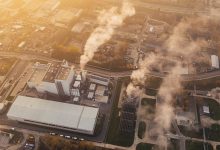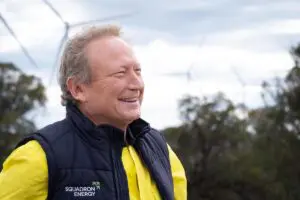While state governments have been enjoying praise for their leadership and their support of a clean energy transformation, recent announcements have masked a flurry of fossil fuel project approvals, that could undermine the environmental benefits of ambitious clean energy policies.
In recent months, state governments from across the political spectrum, including the New South Wales, Victoria and Queensland governments, have all recently launched ambitious plans to accelerate investment in renewable energy projects.
While state governments have been rightly praised for showing leadership in driving clean energy investment in what is otherwise a federal policy vacuum, here has also been a flurry of fossil fuel projects that have received been waved through government approvals processes.
Almost every Australian state and territory has seen fossil fuel projects quietly given the green light, while state governments tout their green credentials, with a flurry of announcements being made just this week.
On Wednesday, the South Australian government awarded a petroleum production licence to the Leigh Creek Energy Project, which is proposing to extract gas from the region’s disused deposits of brown coal. The project is intending to build a nitrogen-based fertiliser factory as well as an on-site 100MW power station.
The brown coal deposits have been left unused since the closure of the Playford and Northern power stations in 2016, but the Leigh Creek project now proposes to gasify them.
The project follows a raft of coal mine approvals granted by the Queensland government, in the lead up to the state election in October. The Palaszczuk government, which was successfully re-elected, signed off on the $1 billion Olive Downs coal mine just weeks before the election.
The Morrison government has been enthusiastically supporting an expansion of Australia’s gas industry, allocating funding in October’s federal budget to develop five new gas basins, including the North Bowen and Galilee Basins in Queensland, the Beetaloo Basin in the Northern Territory and the Narrabri gas field in New South Wales.
In Western Australia, the APA Group has announced plans for a $460 million gas pipeline investment, linking gas fields in the Perth Basin to the Goldfields region and which is designed to open up more regions to gas exploration.
In the Northern Territory, Origin Energy released a statement to the Australian stock exchange, saying that it had progressed fracking activities in the Beetaloo Basin, a gas project so large that it alone could increase Australia’s total greenhouse gas emissions by between 7 and 22 per cent.
In New South Wales, marking one of the most significant announcements, the Morrison government granted federal environmental approvals to the controversial Narrabri gas project. The $3.6 billion project will produce up to 200 terajoules of gas per day, representing around half of New South Wales’ total gas consumption.
The Narrabri has been waved through by both the NSW and federal governments, having already received state government planning approval, despite immense opposition from both environmental groups and local communities, with additional doubts raised around the costs of the gas extracted from the project.
The Australian Energy Market Operator has estimated that the cost to produce gas from the Narrabri project would likely fall within a range of $7.28 to $9.36 per gigajoule, and is more than double the $4 per gigajoule target recommended by the Morrison government’s National COVID-19 Commission.
The development of new coal and gas projects, at the same time as plans for a substantial amount of new investments in clean energy projects are announced, raises questions about the risks being taken through the new fossil fuel investments, and the possibility of stranded assets.
When asked about the Narrabri project, former prime minister Malcolm Turnbull told the AFR energy summit that he questioned whether the additional gas supplies would actually lead to lower energy costs for Australian consumers.
“If the cost of getting that gas out of the ground is $7 a gigajoule, you’d have to really ask yourself, Is it going to be competitive?” Turnbull said. “How much demand is there going to be for gas as you see more batteries? As you see pumped hydro deployed?”
Turnbull suggested that some of the projects may never go ahead.
“The simple proposition is that an energy company will not undertake a project, the cost of extraction of which is higher than the price of which they can sell the product. I mean, unless they want to go broke,” Turnbull added.
For the record, the Victorian government hasn’t escaped being labelled recalcitrant, having been accused of flaming the ‘culture wars’ with a proposal to slap a new road user tax on electric vehicles.







